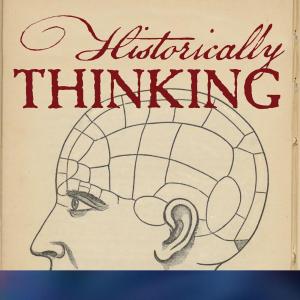Historically Thinking

Episode 240: Empire and Jihad
In 1914, at the start of the Great War, the Sultan of the Ottoman Empire called for a “Great Jihad” against France, Russia, and Great Britain. It was a logical conclusion to over fity years of conflict between European and indigenous powers in the Middle East and North Africa, a conflict that eventually became a radical Islamic insurgency supporting an ancient slave trade against Western colonialism that exploited “coolie capitalism”. This is the complex story that Neil Faulkner tells in his new book Empire and Jihad: The Anglo-Arab Wars of 1870-1920. Ranging from the Congo basin to the deserts of North Africa, he traces the complex interweaving of humanitarianism, colonialism, nationalism, and Islamism—arguing that Jihad was a reactionary response to modern imperalism. Neil Faulkner is an archaeologist and historian, who works as a lecturer, writer, excavator, and occasional broadcaster. He is editor of Military History Matters, and the author of fifteen books. For Further Investigation Neil Faulkner, Lawrence of Arabia's War: The Arabs, the British and the Remaking of the Middle East–the precursor to Empire and Jihad Neil Faulkner, A Radical History of the World–there's much of this previous book also to be found in Empire and Jihad Last year in Episode 148 we discussed the exploitation of the Congo with Robert Harms, an intimately related topic to this. Together they're really a matching set of conversations.






 Visit Podcast Website
Visit Podcast Website RSS Podcast Feed
RSS Podcast Feed Subscribe
Subscribe
 Add to MyCast
Add to MyCast